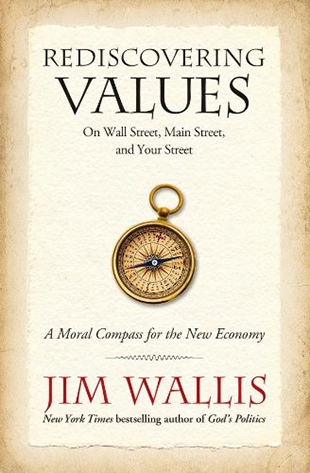"I can't count the number of times, during this economic crisis, that somebody has said something to me about old values and lessons that they/we had somehow forgotten. Sometimes they recall the things they learned as a child from their parents or maybe in Sunday school, church, or synagogue or just the values that seemed to define the community where they grew up but have now disappeared. It's more than nostalgia; it's a feeling of loss. And they can't quite remember when and how they got away from those old values.
"But three things are bringing the memory of those old values and lessons back.
"First is the economic crisis itself. From middle-class families in debt up past their ears to CEOs who are finally finding the space for reflection, a fundamental reassessment may be taking place. And, of course, poor and working-class families are just trying to keep from completely drowning under the waves of recession. But many are now asking: is living with such economic aspirations and pressures what we really want, and what will give us the most ultimate satisfaction?
"The second thing causing the soul-searching is a worry about what values our children are growing up with. It's not just money that people don't have enough of; it's time — and especially family time to be with their children. The demands of economic success have steadily eaten away at family time for many people, and the collapse of old economic assumptions and goals is focusing a spotlight on the empty personal and relational places in our lives.
"Third, there may be a new empathy that emerges from all this for the poor and most vulnerable. All of a sudden many more people are vulnerable, close to the edge or falling over it. The judgments we have made about the poor may be slipping away as we see how fragile life is and how fast and easily things can go wrong, even for a family that is really trying. Hard times that hit middle- and working-class people can sometimes produce more compassion for all those who are most often left out and left behind.
"So crisis creates openness and can open us up to learning and, sometimes, relearning, of old values. We are realizing now, for example, that when the economic gaps between us get too big, it is usually not a good thing for a society. Indeed, many of our economic crises have been preceded by great divides between the top and bottom of society. We are also realizing that our neighbors matter, and that our well-being is connected to theirs. Competing with the Joneses could be replaced with making sure that the Joneses are okay. And we might even learn why all of our religious traditions spend so much time talking about the poor and vulnerable — and why their well-being is seen to be one of the best tests of a society's integrity and 'righteousness.' Because when they are forgotten, the social bonds that hold the rest of us will soon be in jeopardy too."
